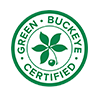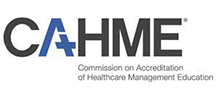The Environmental Health Sciences MPH requires a minimum of 45 credits, including an applied practice experience and integrated learning experience. Students gain the knowledge, skills and degree- and specialization-specific public health competencies necessary for general and applied public health practice in public or private sector careers related to population health as environmental health scientists.
MPH EHS courses
Integrated foundational MPH courses (12 credits)
- Methods in Quantitative Data Analysis (PUBHTLH 6001)
- History, Values and Essential Services of the U.S. Public Health System (PUBHLTH 6002)
- Methods in Public Health Planning and Evaluation (PUBHLTH 6003)
- Foundations of Health Systems and Policy with Applied Integrative Lab (PUBHLTH 6004)
Required specialization courses (22 credits)
- Principles of Toxicology (PUBHEHS 5315)
- Principles of Occupational Health Science (PUBHEHS 5325)
- Principles of Environmental Health Science (PUBHEHS 6310)
- Global Health and Environmental Microbiology (PUBHEHS 6320)
- Major Human Diseases in Global Public Health (PUBHEHS 6390)
- Environmental and Human Health Risk Assessment (PUBHEHS 7365)
- Exposure Science Monitoring Techniques I (PUBHEHS 7380)
- Seminar in Environmental Sciences (ENVSCI 7899)
Practice-based experiences (5 credits)
- Applied Practice Experience (PUBHLTH 7189)
- Integrated Learning Experience in Public Health (PUBHLTH 7998)
Electives (6 credits)
Download the full curriculum guide for a sample of environmental health sciences electives available. Electives from elsewhere at the university may satisfy this requirement with advisor approval.
For complete details of the environmental health sciences MPH degree program, view the most current curriculum guide, including a sample plan to complete the degree in four semesters. Course offerings and requirements are subject to change.




